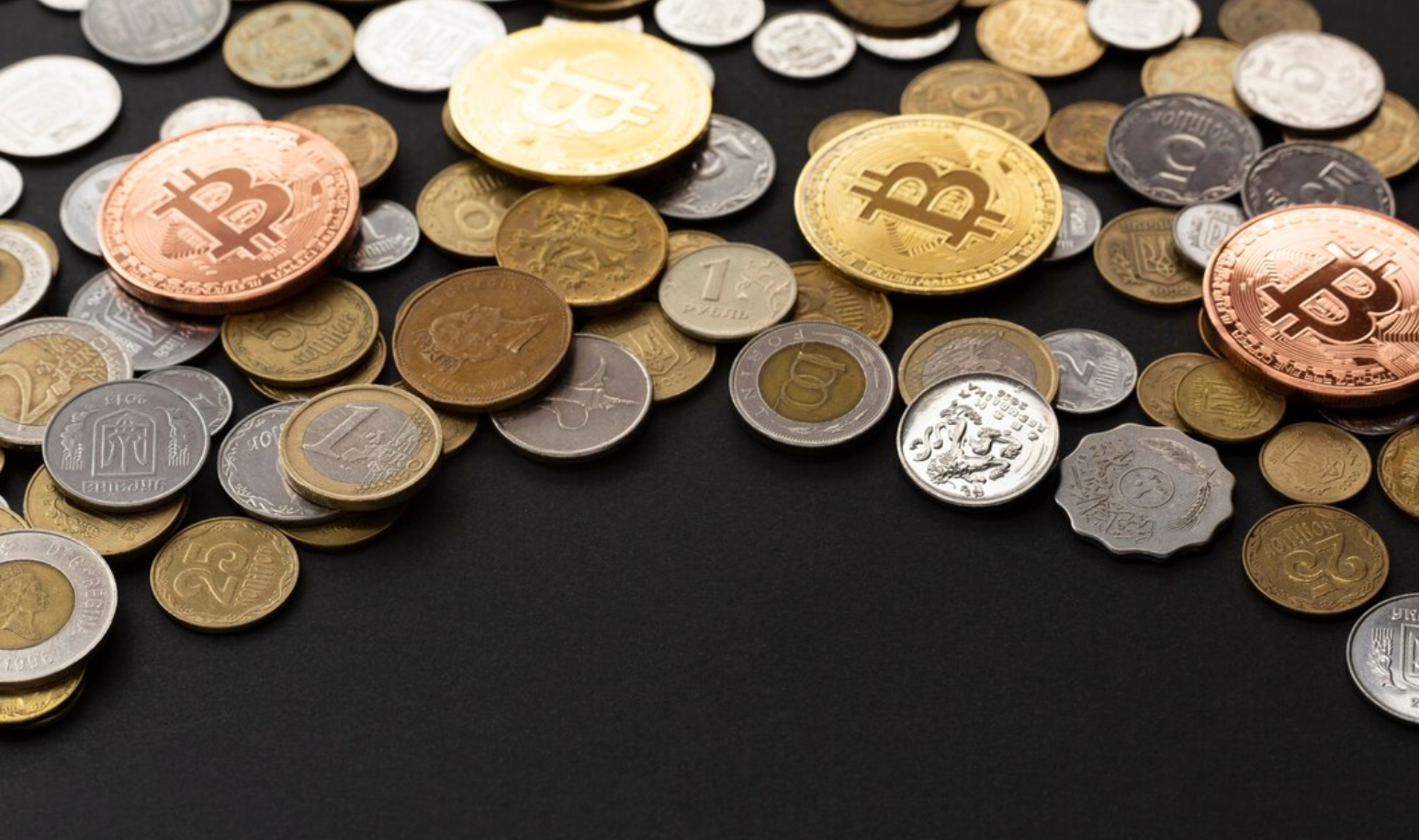Beyond the struggles of chapels and the different currents running through the crypto industry, “democratization” and “adoption” come back as objectives to be achieved at all costs. But if this step is crucial to reach for a sector that aims for nothing less than to change the world, it could be that one day it will only be taken in return for a heavy price: that of decentralization.
Mass Adoption and Decentralization, The Lark Mirror
It will not have escaped your notice that the crypto market has been gloomy for some time now. And yet, it is impossible to hide the fact that technology blockchain and the new concepts that gravitate around them (cryptos, NFTs, Metavers, etc.) are of increasing interest to institutional players and large companies who will do everything to work, at their level and in their interests, for mass adoption by individuals.
And, in a logic of profitability completely understandable, the majority of the work done by these entities is done during the bearish phases, so that everything is ready when the next bullish wave deigns to point the tip of its nose.
The visibility linked to the interest shown by these new players is a good point, but it comes with traps which risk undermining the very foundations of this ecosystem.
Recall that when Satoshi Nakamoto created Bitcoin, it was a militant act following the financial crisis of 2008 and aimed at enabling the emergence of a peer-to-peer, autonomous and decentralized payment system for everyone, everywhere it is in the world, can emancipate itself from the banks and become the real owner of its funds.
However, Nakamoto’s sweet “cypherpunk” dream of emancipation is now opposed by the growing need for governments and financial institutions to catch up on digital assets, even if it means partially paralyzing their operation through a inadequate regulations.
First of all, remember that a lark mirror is a trap made up of mirrors in which curious birds come to admire themselves before being captured, for lack of having flown too close to the ground.
In other words, a lark mirror is a beautiful, but deceptive thing.
Today, many investors and players present in cryptos are likely to experience the same fate as these unfortunate volatiles, attracted by the promises made by large companies which hide the dangers of a financial system behind beautiful promises and beautiful offers, obscuring at the same time the primary ideals carried by cryptos.
>> Register quickly on Bitget and make a first trade to get $20 bonus in USDT (commercial link) <<
Individuals (retail)
Retail investors, such as yours truly, are interested in cryptos for several reasons.
These may be people wishing to find full ownership of their funds in order to emancipate oneself from the ever more penetrating gaze of traditional financial institutions and governments (one thinks in particular of the FICOBA3 project and the request that Bercy allegedly made to obtain details of all the balances and banking transactions of the French), fortunately without succeeding.
If you don’t see what it’s all about, the details are covered in this article written by Rémy.
Fearing the disappearance, or control, of their savings, these savvy individuals see cryptos as a refuge, a space in which they could regain a freedom of which they have been deprived by the system, a place where the use of currency n is no longer subject to iniquitous rules or subject to the control algorithms of banks and their growing “compliance” obligations.
For these people, cryptos represent a great opportunity, and allow them to regain a certain freedom.
But they can also be people who are ill-informed, or attracted by the sole lure of profit, and whatever their motivations, they risk proving insufficient to succeed in dodging some of the traps set by the institutions.
The big enterprises
Because nowadays, and even in a bear market, news is flourishing linking large companies (Disney, Facebook etc.) and crypto projects.
If we can still salute the adoption that these gestures represent, we will have to be very vigilant so as not to abandon to these societies the freedoms that Nakamoto’s invention was precisely intended to reclaim from us.
Buying a Disney NFT might delight some kids, but using a currency created by Facebook (or otherwise) would be completely against the principles that Bitcoin stands for.
Attention, therefore, to all these projects and to the speeches of companies and giant corporations which seek above all profit, and not the defense of our individual freedoms.
It is certain that a certain number of the “ordinary” customers of these entities will participate in web3 in a way that is very different from that which Satoshi dreamed of.
Financial institutions

If you have been following the news in the field for a while, you will have noticed that financial institutions and establishments have shown a certain mistrust of digital assets from the start.
Quite logically, banks and other investment funds were not going to praise a currency that they could not control and/or products that they could not offer, or even legally possess.
More recently, these same institutions have, due to changing regulations and a better understanding of what cryptocurrencies are, started to change their tune. Some even talk about offering their customers a cryptocurrency custody service.
However, if these services are very practical, they are totally against Nakamoto’s wishes.
Satoshi did not code Bitcoin to have third-party entities hold your private keys and funds, making cryptos just as subject to traditional finance as Fiat currencies.
To take just one example, the fact that some online banks offer a crypto acquisition service may seem like a good thing in terms of visibility and exposure of the digital assets offered by this bank.
But acquirers only benefit from exposure to the volatility of said assets, not from the expansion of the libertarian dream that drives Bitcoin.
Because by investing on the platforms of these online banks (or neo-banks), you do not actually own your cryptos, nor your private keys and this system is therefore neither autonomous nor decentralized.
Centralized crypto platforms
Any sector with significant growth naturally gives rise to many players. Few of them, however, manage to stand out.
Each of you will have in mind your favorite exchange on which you leave, perhaps in a relatively inappropriate way, the majority of your cryptos. Whether it’s for the sake of simplicity, laziness, or for fear of going out of the box and making mistakes that will cost you dearly.
These companies are useful in that they allow, through their visibility and the confidence they inspire, to ensure that newcomers to the crypto sector can easily acquire their first tokens and make their first transactions.
But, in the same way that the warning was valid for the projects developed by certain large companies, the “comfort” offered by these entities should not make their users lose sight of the quasi-philosophical importance of going through the other half of the way.
However, regardless of their seriousness or the quality of the services they offer, none of these entities has an interest in pushing their customers to take out their cryptos to keep their funds themselves.
Kraken’s iconic boss, Jesse Powell, had also made an exit on this subject by reminding its customers that a centralized platform cannot operate by opposing regulation head-on, and that the only way to truly protect your funds is to keep them yourself . However, this is an isolated speech in the middle of the major players in this environment.
If you want to read the speech of the former CEO of Kraken, I invite you to consult this article written by Jeff.
Governments
The elephant in the room as our Anglo-Saxon friends say.

As cryptocurrencies gain in volume and adoption, and as the global economic environment becomes less and less easy to manage for leaders, we must not overlook the fear of rulers about the loss of control of the currency.
Because if you don’t control the currency, you don’t control your population.
And how, in this situation, protect your interests?
Here again, difficult and numerous trade-offs will be made and may not be very favorable to the emancipation of digital assets.
In this sense, and at European level, the Council of the European Union has communicated that the Council and the European Parliament have reached a provisional agreement on 29/06/2022 aimed at aligning the regulations related to the transfer of cryptoassets with the regulations fiat currency transfers.
This will require payment providers (the CEXs we were talking about earlier) to collect very precisely the same information on their customers as that collected today by banks on theirs.
The underlying invoked is to avoid the dishonest use of funds within the framework of the famous LCB-FT regulations (fight against money laundering and financing of terrorism) and to be able to block dishonest or dubious transactions.
You know what they say, hell is paved with good intentions… The battle between centralized entities, institutions, governments and dreams of freedom is thus launched. The next few years will certainly bring their share of ideological battles, advances and disillusions, but they will be interesting from every point of view and the Journal du Coin will be at your side to comment on them.
Easy money to accumulate more Bitcoin? Sign up now on Bitget and make a first trade. You will then receive a $20 bonus in USDT! Limited-time offer, reserved for the first 1000 subscribers (commercial link, see conditions on the official website).





